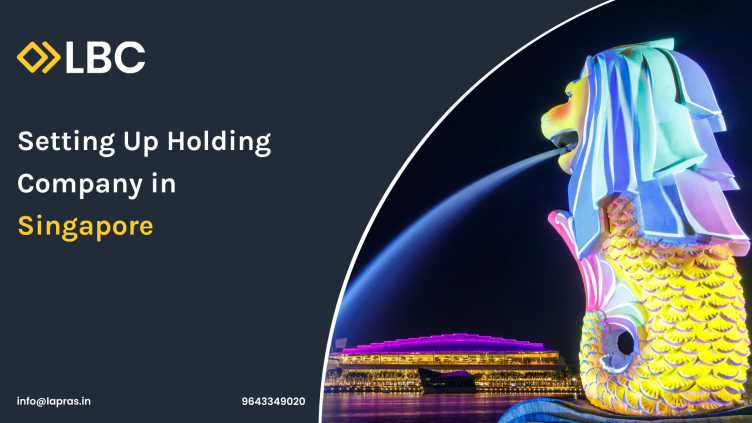What is the Holding Company?
A holding company is a parent company — Private Limited or Limited Company — that is created to buy and control the ownership interests of other companies. The companies that are owned or controlled by a holding company are called its subsidiaries.
Holding companies do not perform any other services or activities. They don’t manage the corporations in the group directly, nor do they administer assets or partake in any decision-making for the subsidiary companies.
Holding companies provide an effective way for your business to manage its assets while protecting you from liabilities. Starting a Singapore-based holding company is also relatively straightforward.
Based on the relationship between a holding company and a subsidiary, it’s not surprising that
– A holding company is also called a parent company/umbrella company, and
– A subsidiary company is known as an operating company.
Note that a holding company registered in Singapore is classified as a Singapore company. Its subsidiary companies can operate both in Singapore and in other countries.
Eligibility Criteria for setting up a Holding Company in Singapore:
– Have at least one local director which is a resident of Singapore.
– Have a registered physical address approved by the Urban Redevelopment Authority of Singapore.
– Have $1 of minimum share capital.
– Appoint a resident secretary within 6 months after registering with the company.
– Have at least one shareholder (either local or foreign).
– No physical presence is required for company set up.
– Registration for VAT (GST) if annual turnover exceeds S$1 million.
– 100% foreign ownership is allowed.
Legal Structures for Company in Singapore
– Investment Holding Company
This is the default corporate structure for companies outside the insurance, banking and finance industries.
– Financial Holding Company
This is the specially designed corporate structure for all the companies operating in insurance, banking and insurance industries.
Please Note that the registration process of the kind of the structure of the companies are very different.
Benefits for Setting up Holding Company in Singapore
1. Attractive Tax Regime
Singapore has an attractive tax regime for companies, so setting up holding company in Singapore will provide leverage on the available tax incentives to optimize the tax liabilities.
Tax regime in Singapore is discussed in detail in later part of the article.
2. Asset protection:
Setting up a holding company allows to protect the assets and reduce the risk of losing those assets if anything go wrong. This is possible because the holding company is treated as a separate legal entity from the subsidiary/subsidiaries.
Therefore, one common scenario is that a holding company will be formed to hold the valuable assets of a business, whereas the subsidiary will take on the operations of the business.
3. Operational Flexibility
There are no limitations on the domiciliation of assets in Singapore. Meaning thereby setting up a holding company in Singapore allows to set up subsidiaries and purchase assets anywhere in the world. As a result, structuring businesses becomes more flexible and operating it from anywhere else in the world is what businesses needs now a days.
4. Ease of Compliance
Compliance with the regulations of setting up a holding company in Singapore are very simple. Moreover, regarding the ongoing compliance obligations of maintaining a holding company in Singapore, there are just two main obligations:
- The usual tax filing obligations; and
- Financial reporting obligations.
Under the financial reporting obligations, holding companies in Singapore have to submit the consolidated accounts of the holding company and its subsidiaries and a balance sheet for the entire group at the financial year end of the company. These financial statements will have to comply with the Singapore Financial Reporting Standards.
The simple compliance processes make it easy to not only set up, but to also maintain a holding company in Singapore.
Tax Incentives and Benefits for Holding Company in Singapore
1. Low Corporate Income Tax:
Holding Companies in Singapore are subject to only 17% corporate tax. A partial tax exemption applies in accordance with which 75% of the first SGD 10,000 of the normal chargeable income and 50% of the next SGD 190,000 of the normal chargeable income are exempt from tax. In addition, for a qualifying new private company, 75% of the first SGD 100,000 of the normal chargeable income and 50% of the next SGD 100,000 of the normal chargeable income may be exempt form tax for its first three consecutive years, subject to certain conditions.
2. No Capital Gain Tax
Capital gains arising from the sale of financial assets such as property, shares and financial instruments are not taxable. Note that if there is any profit from any other activity like trading is taxable.
3. No Tax on Dividends
Dividends received by the Holding Companies in Singapore from domestic companies or foreign companies are not taxable.
4. No withholding Tax on Dividends
Dividends paid to non-residents are not subject to withholding taxes.
5. Benefits through Double Tax Treaties
Singapore has Double Tax Avoidance Agreements, (DTAA), with more than 90 countries. This implies that holding companies in Singapore can enjoy tax exemptions and lower withholding taxes from those countries.
6. No Controlled Foreign Company Rules
There are no CFC rules in Singapore. CFC Rules means is to stop companies in Singapore from moving their corporate profits to low or no tax countries so they can reduce tax liability.


